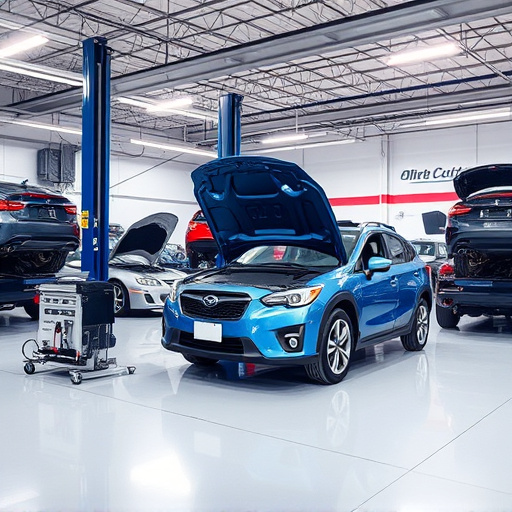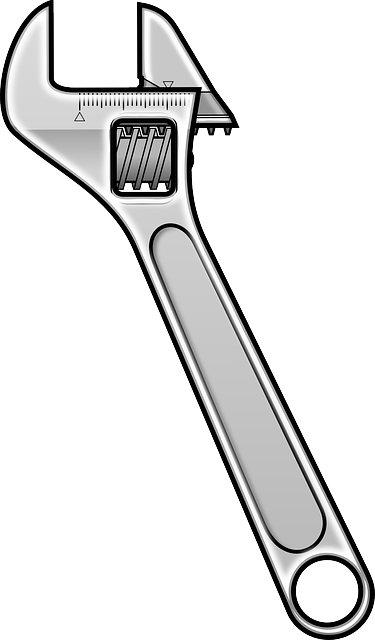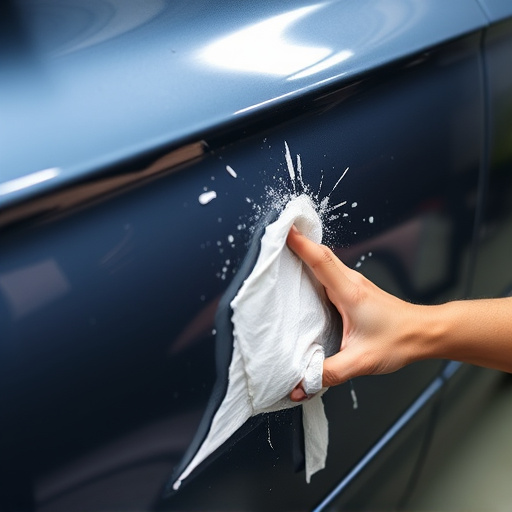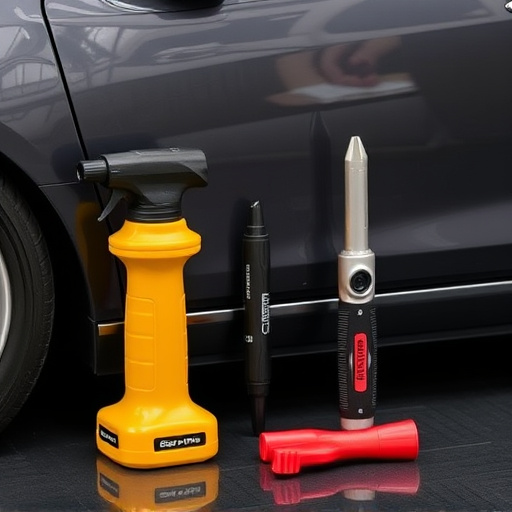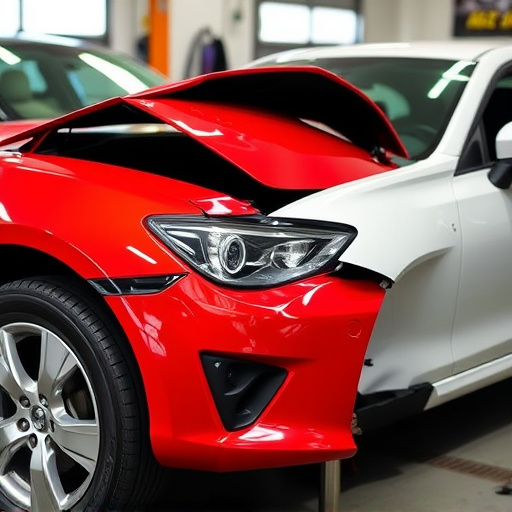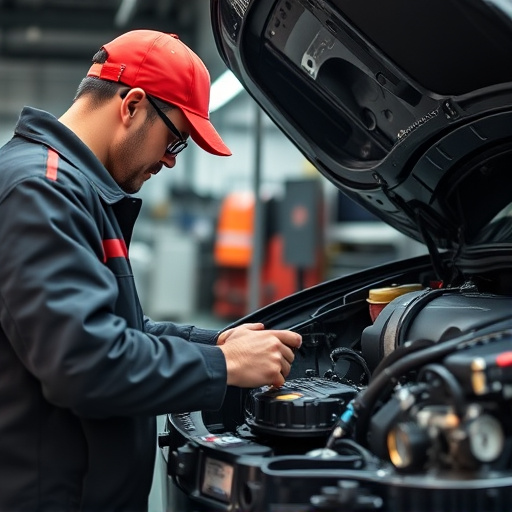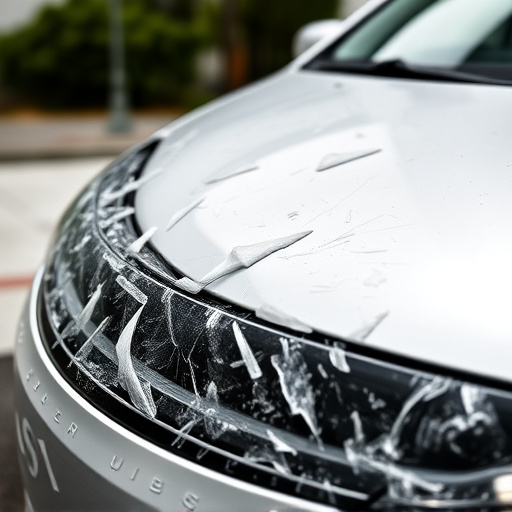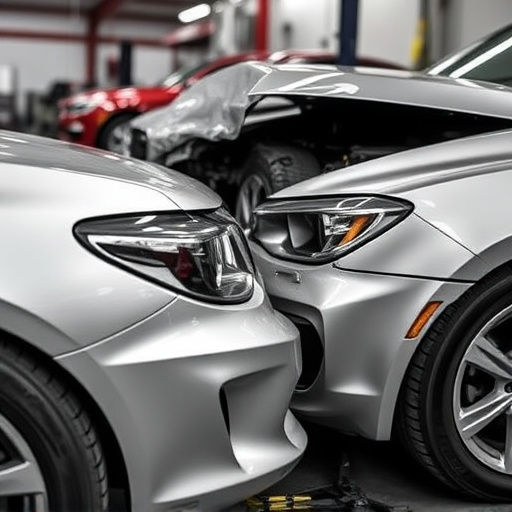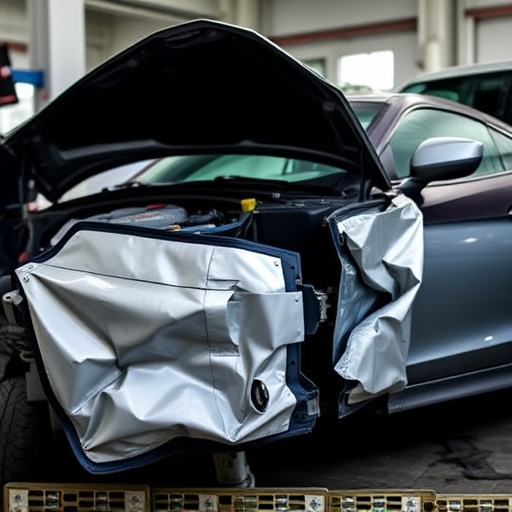Mercedes Active Brake Calibration (MAB) is a safety system that adjusts brakes to prevent collisions. Regular calibration ensures optimal performance crucial for all road users' safety. Post-collision inspections involve thorough checks of MAB sensors, control units, and actuators by skilled technicians using specialized tools to maintain braking effectiveness and meet industry standards, enhancing driver control and reducing secondary accident risks.
Mercedes Active Brake Calibration is a critical safety feature that ensures precise braking performance. This article delves into the intricacies of this system, focusing on its role in post-collision inspections. We’ll explore how technicians meticulously calibrate brakes after accidents to maintain optimal safety standards. Understanding this process is essential for vehicle owners and mechanics alike, as accurate calibration checks directly impact the overall safety and reliability of Mercedes vehicles.
- Understanding Mercedes Active Brake Calibration
- Post-Collision Inspection Process Explained
- Ensuring Safety Through Accurate Calibration Checks
Understanding Mercedes Active Brake Calibration
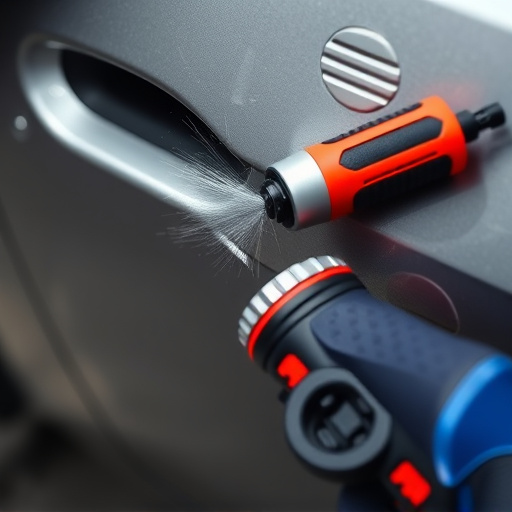
Mercedes Active Brake Calibration is a sophisticated system designed to enhance vehicle safety by automatically applying brakes to mitigate or avoid collisions. This advanced technology uses a series of sensors and calculations to determine the optimal braking force required in various driving conditions. Regular calibration ensures that these systems operate at peak performance, which is crucial for the safety of drivers, passengers, and other road users.
During post-collision inspections, mechanics often perform a Mercedes active brake calibration check to verify the system’s integrity. This process involves meticulously testing each component, including sensors, control units, and actuators, to ensure they are functioning accurately and consistently. Such checks are vital for fleet repair services and body shop services, as they help in identifying any discrepancies or damage that could affect braking effectiveness.
Post-Collision Inspection Process Explained
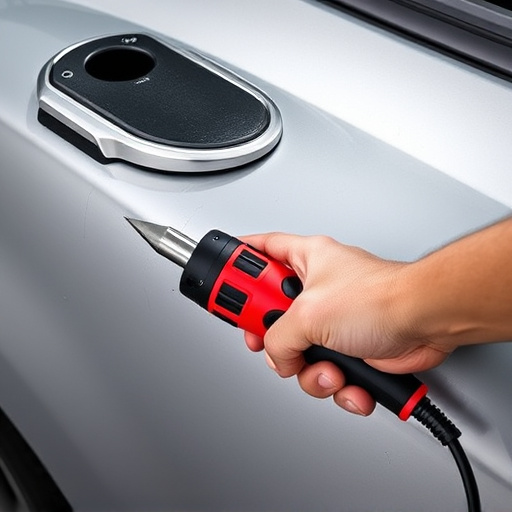
After a vehicle collision, especially one that has resulted in damage or potential injury, conducting a thorough post-collision inspection is crucial for both safety and legal reasons. This process involves a meticulous evaluation of the car’s systems, including its active safety features like the Mercedes Active Brake. During this inspection, technicians carefully assess the integrity of various components to ensure they function optimally and safely.
The post-collision check includes calibrating and testing the brake system, which is a critical step in determining if the vehicle is fit for road use. This involves using specialized tools to measure and adjust the Mercedes Active Brake calibration, ensuring precise stopping power and performance. As part of this process, car repair services often collaborate with collision repair experts to provide comprehensive assessments, making certain that any issues are identified and rectified to meet industry standards and legal requirements in vehicle collision repair.
Ensuring Safety Through Accurate Calibration Checks
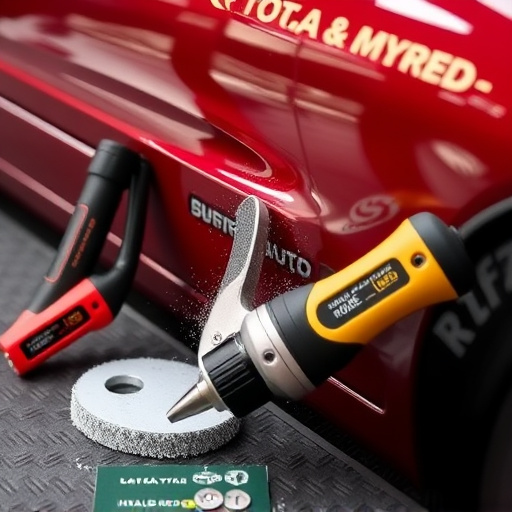
In the aftermath of a vehicle collision, safety is paramount, especially regarding critical systems like brakes. This is where Mercedes Active Brake Calibration plays a pivotal role. Accurate calibration ensures that anti-lock braking systems (ABS) and other advanced braking technologies function optimally, enhancing driver control and reducing the risk of secondary accidents. During post-collision inspections, thorough checks of these calibrations are essential to identify any discrepancies or wear that could compromise safety.
Proper Mercedes active brake calibration is not just about checking numerical values; it involves a comprehensive evaluation of sensor performance, hydraulic systems, and electronic controls. Skilled automotive technicians use specialized tools to simulate various driving scenarios, ensuring the brakes react swiftly and precisely. This meticulous process, part of the broader automotive repair and restoration process, is crucial in restoring vehicles to their pre-collision condition, safeguarding not just drivers but everyone on the road.
Mercedes Active Brake Calibration is a critical safety feature that requires meticulous care and regular checks, especially after collisions. The post-collision inspection process ensures that the vehicle’s braking system remains accurate and reliable, safeguarding drivers and passengers alike. By understanding the importance of this calibration and its integration within the Mercedes fleet, we can confidently assert that these thorough inspections contribute significantly to maintaining optimal safety standards on the road.
